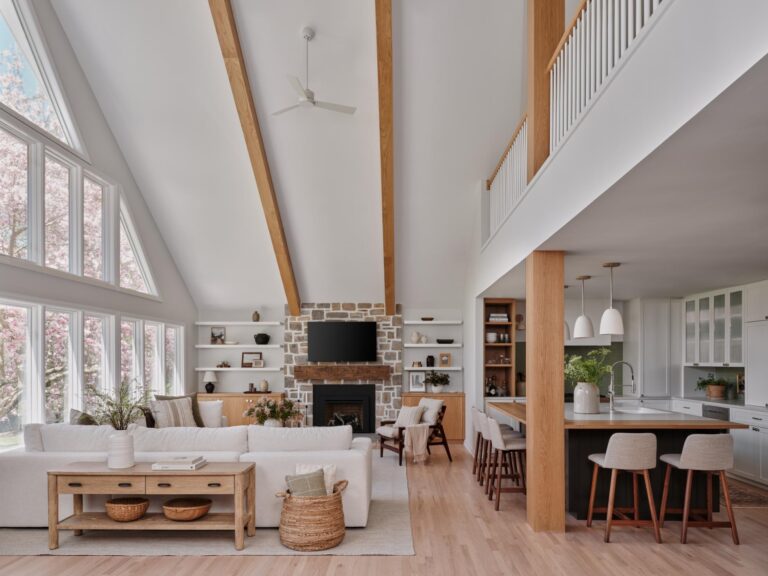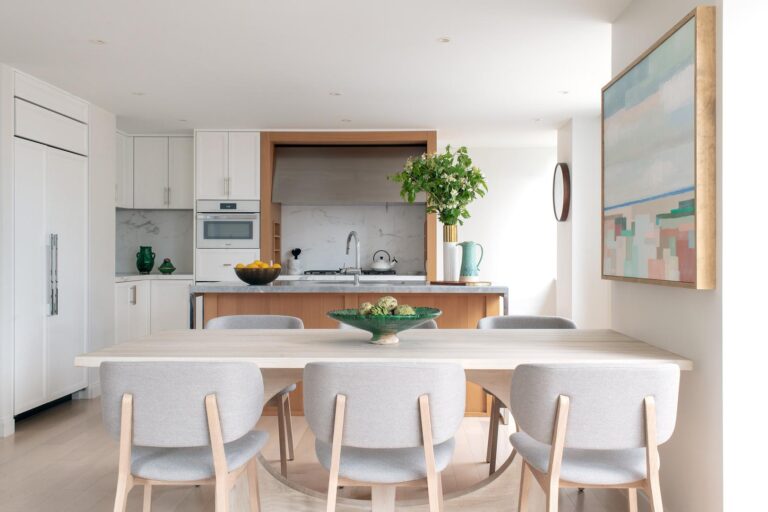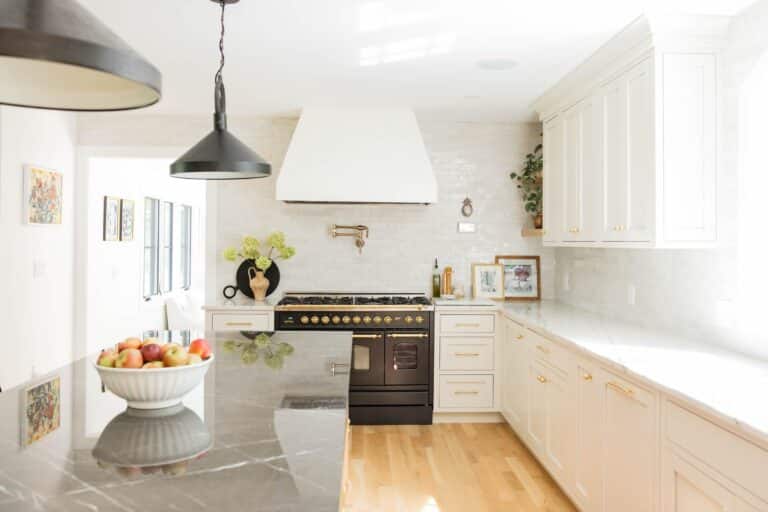Bring a little green indoors, and create the perfect conversation piece, with some advice from the experts on the latest fun trend of growing vertical gardens.
By Kristan Zimmer
Add drama and whimsy by growing a garden up your wall instead of outside your window. What has been predominantly a corporate trend of late is now becoming increasingly popular in residential design, says Colin Coogan, co-founder of Green Up, a design firm and garden center in Stamford, CT. A vertical garden can be a show-stopping full wall of greenery separating one room from another, or a simple decorative element. Even more than that, it’s a great way to improve your indoor air quality, and to grow your own fresh vegetables or herbs, especially when you live in town or in a city.
How The Concept Grew
Vertical gardening was popularized partly by French botanical designer Patrick Blanc, says Robin Plaskoff Horton, founder and creative director of urbangardensweb.com, a blog that focuses on city living, innovative design and nature. “Blanc brought a somewhat old concept into the design realm,” says Horton. “They add color and texture to a design scheme, creating a focal point or camouflaging a flaw.”
What is a vertical garden?
All vertical gardens are essentially made of either pockets or shelves so plants can be stacked one on top of the other while still leaving room for them to grow. Woolly Pocket is a popular choice. This company makes thick felt panels of pockets that can be hung on the wall. You can put the plants in potting soil in these pockets, or wrap the plants’ roots in felt and feed them with an automatic tube. For those who don’t mind a little dirt in their house, you can opt for shelves that store potted plants.
What You Need
Growing a living wall is easy if you have the right elements, says Coogan. His garden center in Stamford can install a vertical garden for clients or provide all the tools. Be sure to have four simple elements:
1. Great light
Create your vertical garden in a space with lots of natural light or plan to provide artificial lighting, says Coogan.
2. Plan for Pests
Even indoors your garden is susceptible to pests, so plan for good maintenance controls such as beneficial bacteria and fungi, or nontoxic pesticide soaps that are safe for your family, pets and plants.
3. Water Source
Hand water or use an automated watering system. Hydroponic watering is popular with indoor vertical gardens because it eliminates the mess of dirt and makes care easy. Wrap your plants’ roots in something like a Woolly Pocket. Don’t add soil! A tube and electric pump feed water and nutrients through the back of the plant pockets.
4. Hearty Plants
Choose plants that are easy care and don’t require a lot of sun and water. Consider texture and color. Coogan prefers ferns and tropical plants because they last longer than flowering plants. However, if your kitchen has a lot of natural light, then herbs and vegetables make a beautiful and convenient garden.
Get Growing
Try your hand at vertical gardening with one of these quick DIY products, from elegant kitchen gardens to plant systems perfect for your outdoor patio.
For Inside
Chalkboard Wall Planter, $139.95, williams-sonoma.com
Free Standing Vertical Garden, $399.95, williams-sonoma.com
Gronomics Vertical Garden, $229.99, walmart.com
Ikea PS 2012 Plant Stand With 3 Plant Pots, $39.99, ikea.com
For Outside
Pamela Crawford Living Wall Planter with Liner, $34.95, kinsmangarden.com
Palram Plantscape Hex 2 Pack, $79.99, sears.com
PlantScape Vertical Garden, $79.99, target.com
Photo Credit: Courtesy of Woolly Pocket



